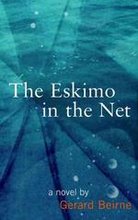Recent Reads
Ray by Barry Hannah.
There are certain rites of passage every young writer must go through. In this case I am not sure why it took me so long. The novel is quite fragmented and is narrated in both first and third person reflecting Ray’s state of mind. And it’s fair to say that his mind is in quite a state. Hannah of course is from the South (and don’t you hate it when people group writers together as though they were types of cheese) so Flannery O’Connor, William Faulkner, Eudora Welty etc seem to be standing on the sidelines watching this guy to see if he can go it alone. Hannah of course has long since proven he can go it alone. Ray has a jazzy feel to it and why wouldn’t it since Hannah himself has said that music informs every sentence he writes. He has also said that language isn’t treated as reverently today as it was when he grew up. But then children aren’t as polite anymore either and gas was only ten cents a gallon.
Hannah is a major literary figure. His collection of stories Airships is a must. I did enjoy Ray, and I appreciated Hannah’s wild and soulful performance. I still think you ought to read it in your twenties. Perhaps, therefore, in your forties you need to read it twice.
Gone Indian by Robert Kroetsch.
The Studhorse Man by Canadian writer Robert Kroetsch took me by the scruff of the neck when I first arrived here, eager to discover the hidden Canadian literature, and it hasn’t let me go yet. Here’s more of the cheese: Kroetsch is Canada’s most important postmodernist. The thing is, I like cheese.
Gone Indian is remarkable and not incomparable to Ray in that it makes much use of fragmentation and is multilayered. The main character, Jeremy Sadness, a graduate student at a New York State university, disappears into the Canadian wilderness. He records fragments of his life story on a tape recorder. He sends the tape to his professor who reinterprets and manipulates the fragmentary details telling us another story. Inadvertently Jeremy exchanges identities with a comatose victim of a snowmobile accident. Need I go on. The book is an exploration of identity and a raucous satire of the (northern) ‘quest’ novel. It thrives on myth and the retelling of myth. The imagination ultimately holds the self together.
Kroetsch is also a poet and literary critic. His non-fiction book A Likely Story: The Writing Life will subliminally teach you more about the craft of story in one reading (although once will not be enough) than a lifetime’s supply of Writing Down the Bones.
I had the great pleasure of working with Robert Kroetsch in a two week long novel colloquim. It’s fair to say I sought him out, was goaded into it by the Studhorseman. He is a man of great presence, kind and intelligent. A superb teacher which is not a trait common to most writers. If the Studhorseman has me by the scruff of the neck, Kroetsch has a gentle but firm grip on my mind.










2 comments:
Message from France (as you might know, Kroetsch is much more famous outside Canada than within): I am delighted to read your post. I read The Studhorse Man last summer, and I am still laughing.
Anecdote: among the 10-floor public library of Chicago, you will find one shelf dedicated to Canadian literature. In this shelf, half of the books are by or about Margaret Atwood. So far, nothing strange. But if you look closer, you will find a treasure which I assume has arrived there by total accident: The Lovely Treachery of Words by Robert Kroetsch. Talk about a condensed brilliant teaching about literature and culture!
Thanks Chloe.
The Lovely Treachery of Words - the title alone informs greatly. Yes it's a remarkable book.
Post a Comment